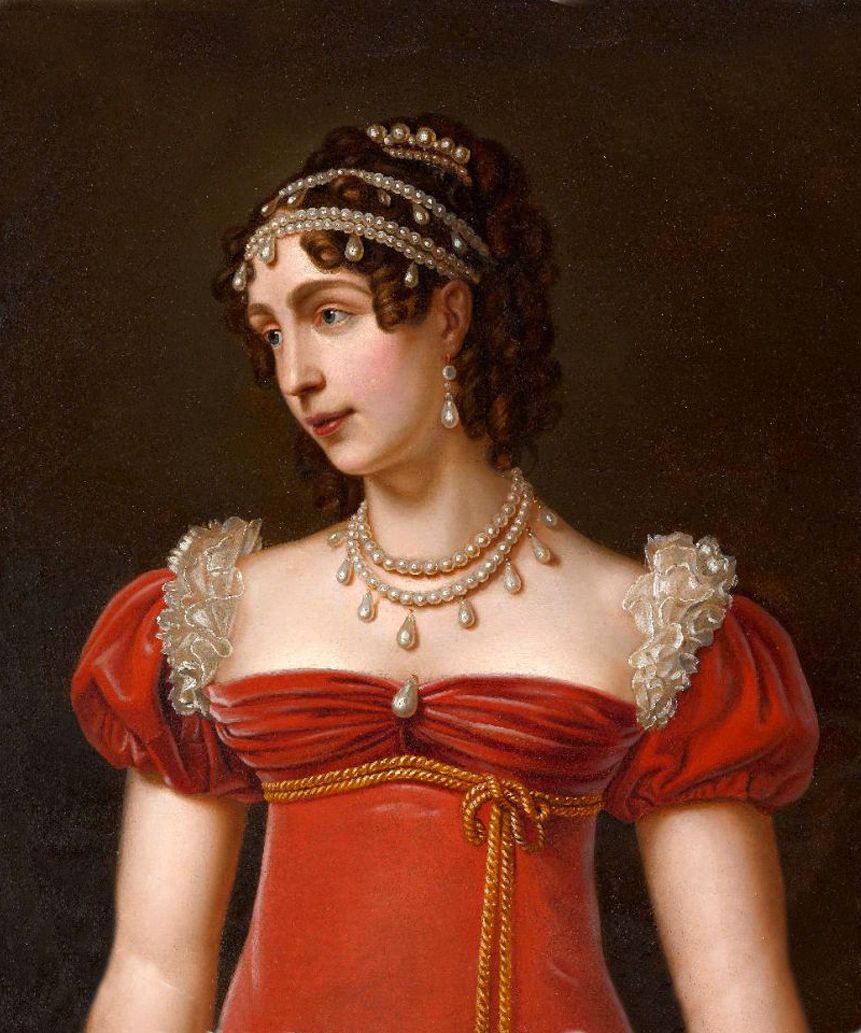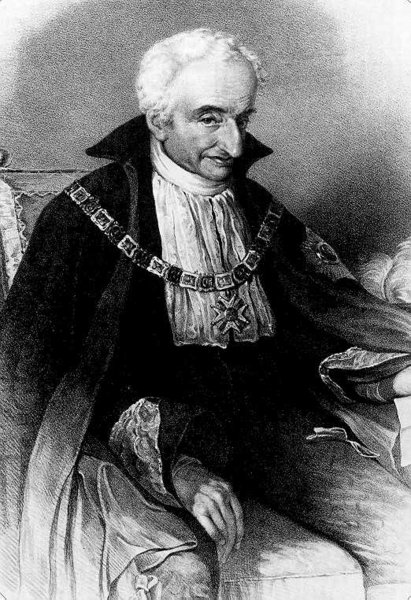
Kingdom of Bavaria
Territory

Leadership

Elisabeth I (born Elisabeth Ludovika) is the eldest daughter of Maximilian I Josef (1756-1825) and his second wife Princess Caroline of Baden. She is the current Queen of Bavaria and Princess-Elector of the Palatinate, installed at the behest of the Concert of Europe after the death of her father. Her ascension was due to an agreement by the powers of Europe after a convention to prevent a War of Succession in Bavaria. Her rule is tenuous and many of her actions are at the behest of her ministers, not the least of which being Maximilian von Montgelas. Despite this, she herself is much beloved by many Bavarians, being known as Queen Elise.

Maximilian Karl Josef von Montgelas is the ailing and aged Minister of Foreign Affairs as well as the godfather and trusted confidant of Queen Elise. A Savoyard and Francophone by birth, he nevertheless has spent most of his life since childhood in Munich. He came into the most trusted non-regal position in Bavaria through his former dealings with a declining Bavarian Illuminati throughout the 1790's, which introduced him to Maximilian I of Bavaria, then Duke of Zweibrücken and eventually first King of Bavaria. Montgelas was often manipulative and underhanded, forcing the impressionable Maximilian I into decisions such as supporting Napoleon's Confederation of the Rhine, nationalizing swathes of Catholic Church land in Bavaria, and passing a (largely powerless) Constitution. He long held a similar power over Elise, but the Queen is long past being a naive young noblewoman, and Montgelas is nearing his 77th year alive. The push and pull of the relationship between Montgelas and Queen Elise is what turns the gears of the Bavarian state.
History
Bavaria was the battleground of the War of the Third Coalition, and so submitted willingly to the French victors who drove the Austrians from the Bavarian Alps. Then-Elector Maximilian IV of Bavaria, under counsel from Maximilian von Montgelas, openly supported the supposed ‘liberation’ which the Bavarian Wittelsbach family believed to be their freedom from an often stifling Holy Roman Empire. Gaining territory in Tyrol and being elevated to the status of Kingdom, the Elector was crowned King Maximilian I of Bavaria. The Bavarians raised 30,000 men for a Bayerische Legion, forming a veteran rear guard of Napoleon’s Grande Armee.
The consequences of the subjugation of the German states was not all beneficial for the Bavarians, as the Treaties of Tilsit forced the drafting and passing of a Constitution in 1808. The Constitution was largely powerless, and while the land reforms and revising of the tax system were already underway before Tilsit, these forced demands upon the Confederation of the Rhine filled the King with unease. Montgelas managed to convince the King that the demands were a means to an end to render the Prussian Junkers (which Bavaria long despised) extinct.
After the Russian refusal to submit to Tilsit any longer, it was the Bavarians who followed the legions of French, Poles, and fellow Germans into the Russian plains. The campaign, while a success which neutered the Russian ability to rise against the Continental System, came with a cost. Of the 30,000 Bavarians who marched into Russia, only 4,000 returned alive and unharmed. The exhaustion of war had a stranglehold on Bavaria, and an uprising in Tyrol during the Russian Campaign had destabilized the border with Austria. King Maximilian shut out Montgelas, turning to his son, Ludwig (an absolutist and Bavarian division commander), and Karl von Wrede (the Marshal of all Bavarian military forces). His son and most trusted general both advocated a betrayal of the French, and the Bavarians, coordinating with Austria, joined the War of the Sixth Coalition.
The Bavarians formed a Corps of the Austrian Army, who intended to surround the embattled French forces at Leipzig at the village of Hanau, but were engaged when the French attempted a fighting retreat westwards. Marshal von Wrede, put in command of the joint Austro-Bavarian Army, positioned his troops for a fight, but the positions were predicted by Napoleon, who forced through and annihilated the joined allies. What remained of Bavaria’s army evaporated, and both of Maximilian I’s sons, Ludwig and Karl Theodor, were killed in the battle. Marshal von Wrede, for his part, was shot and managed to survive an infection, however was permanently immobilized.
Bavaria could fight no longer, and what few Bavarians were left fought under an Austrian banner for the remainder of the campaign. Upon the emancipation of the German states from the Confederation of the Rhine, Bavaria found itself with a generation lost to warfare, coffers rapidly draining, and with its Tyrolian province now returned to Austria. King Maximilian I, so drowned in grief, all but handed the day-to-day affairs of the kingdom to Montgelas. This grief plagued the King for the remainder of his life, reportedly having hastened his own passing in 1824.
The King had been largely despondent for his last few years of life, failing to establish a concrete succession in absence of any living male heirs or nephews in the Wittelsbach line. The succession would’ve fallen either to Caroline, who was the wife of the Emperor of Austria, or Augusta, who had at one point married a Napoleon but had her marriage annulled, instead managing to be married off to a Bourbon in the aftermath of the Napoleonic Wars. The newly-established European Congress System stepped in with its 1825 Convention, aiming to prevent a War of Bavarian Succession, decreeing the surviving daughters Caroline and Augusta unfit for inheriting the Bavarian Crown, instead putting the burden upon the first daughter of the deceased king’s second marriage, Elisabeth, twenty years of age and still without engagement to any suitor.
With the Crisis of Succession solved, the affairs of Bavaria could move forward. Montgelas, Elisabeth’s godfather and now her new confidant, retained much of his power on the management of the Kingdom. He ‘honored’ the Constitution, even submitting amendments for approval of the Queen and the House of Councilors (which consisted entirely of wealthy landholders and personal friends of Montgelas). The reforms of Montgelas, known as the Ansbacher Acts, managed to save Bavaria from destitution by reorganizing the civil service, including establishing a tax enforcement service which properly carried out the reformed British-style tax system. Taxation was imposed on Catholic organizations as well as on members of the clergy. Montgelas was only saved from the personal ire of the Catholic Church due to his connection with the Bavarian Crown and sham legislature, which both brought legitimacy to the decrees. Montgelas also allowed for Protestants to claim Bavarian citizenship (primarily in the interest of collecting more taxes, however the minister also held Reformation ideologies), as well as allowing limited citizenship for Jews and other non-Christians.
The ramifications of the reforms were not felt overnight, but the brewing resentment for the civil service and the policies of Montgelas (colloquially termed the Dienstpragmatik) eventually fueled the rise of a Ultramontanist party. The Ultramontanes were staunch Catholic supremacists, believing in the absolutism and infallibility of both the Bavarian monarch and the Pope. Appealing to the Catholic masses which still constituted a majority of all Bavarians, Ultramontane candidates flooded the largely powerless lower house of the Bavarian Parliament, becoming a majority of all members. Despite the weak lower house having little power, the pressure of the Ultramontanists forced a reversal on certain policies, such as reverting Protestants to limited citizens and returning monasteries to their status as untaxed and Church-owned land, all at the decree of Elisabeth I, who then controversially dissolved the parliament and called for new elections and appointments. While most statesmen immediately regained their positions by election or appointment, the shake-up of the legislature served to temper many of the more radical elements.
It is now 1836, and the new Parliament of Bavaria has been seated in Munich. Montgelas is old, and his health is failing, while the Queen is gaining confidence in her rule. Elements in Bavaria call for more radical reforms. Ultramontanes call for a return to the absolutism of the monarchy and the return of ‘Catholic morality’, students and liberal Protestant professors dubbed ‘Nordlichers’ preach for a return of the Ansbacher Reforms and the institution of a true republic, while rumors of subversive gentlemen’s societies fuel the public fear of an autocracy, neither royal nor republic. Acts from Austria and France balance the kingdom once again between two competing powers which may not have the best interests of Bavaria in mind. Day by day, the Catholic bastion slips closer to Revolution.




